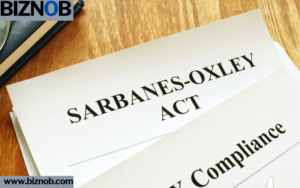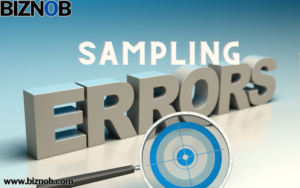What is a self-regulatory organization (SRO)?
A self-regulatory organization (SRO) is an entity, such as a non-governmental organization, that can create and enforce stand-alone industry and professional regulations and standards on its own.
Protecting investors is the first goal for financial SROs, like stock exchanges, and they do this by enacting laws, guidelines, and standards of conduct that uphold equity, professionalism, and integrity.
Understanding SROs
Despite being privately owned businesses, SROs are still subject to some laws. Nonetheless, the government gives self-regulatory bodies some authority to oversee some industries.
The SRO may often operate as a watchdog to prevent fraud and unethical behavior, as it has some regulatory authority over a profession or business. An SRO’s capacity to enforce regulations is not derived from a government grant of authority.
Instead, SROs often achieve control using internal systems that manage the direction of corporate activities. The authority might also originate from an agreement between similar firms on the outside. These groups want to rule from within without being affiliated with the national government.
The SRO’s rules become additional to any relevant laws or government regulations, which will take precedence.
Self-Regulatory Organizations’ Authority
The norms and requirements established by the self-regulating organization to direct activities become legally obligatory. When a company is considering joining the SRO, it has to be aware of the penalties for not adhering to the requirements.
Additionally, the SRO has the authority to establish requirements that professionals or companies must fulfill to join, such as meeting a minimum educational requirement or doing business in a way the sector views as ethical.
One of the SRO’s responsibilities is to teach investors proper business procedures. The SRO will provide information and opportunities for feedback on any areas of interest or concern, such as fraud or other unethical industry practices. The SRO may also advise on reducing any risks connected with the securities sector and assist investors in understanding how their assets operate.
Self-Regulatory Organization Examples
Even if they were unaware that the organization in issue was self-regulatory, most individuals had heard of SROs. Several well-known asset exchanges and regulatory organizations are among them, including:
- The NYSE, or New York Stock Exchange
- The Association for Financial Planning (FPA)
- Board of Trade of Chicago (CBOT)
- The ACLI, or American Council of Life Insurers
- FINRA, or the Financial Industry Regulatory Authority, Inc.
- Options Clearing Corporation (OCC) and Fixed Income Clearing Corporation (FICC)
- The AICPA, the American Institute of Certified Public Accountants
Additionally, self-regulatory groups such as the Association of Mutual Funds in India (AMFI) and the Investment Industry Regulatory Organization of Canada (IIROC) could be unique to their nation. The Institute of Nuclear Power Operations (INPO) and the American Bar Association are two examples of sectors that may establish SROs.
Before changing any of its regulations, including trading rules, financial SROs must submit Form 19b-4 to the SEC. The SRO must give SEC staff a justification for the new regulations in the submission, emphasizing that the changes promote fair trading markets, provide investor safeguards, and establish the necessary supervision processes.
Real-World Illustration: FINRA
For instance, the Financial Industry Regulatory Authority (FINRA) can license securities dealers. They have the power to verify adherence to the established standards and to audit dealers and related businesses. Promoting moral business conduct and increasing sector transparency are the objectives.
FINRA also supervises arbitrations involving investors, brokers, and other relevant parties. This monitoring restricts what a corporation may do outside the system and offers a standard for handling conflicts. FINRA is not a government agency. Instead, it is a private association whose member businesses include financial institutions, financial experts, and broker-dealers.
Under the aegis of a self-regulatory structure, FINRA promotes and enforces rules and regulations. The Securities and Exchange Commission (SEC) oversees government laws and requirements. Federal or state legislation will take precedence over any restrictions specific to FINRA.
Commonly Asked Questions
What does a business SRO mean?
“Self-regulatory organization” is what SRO stands for. In an SRO, the members have created and adopted the guiding principles and regulations and have agreed to abide by them at all costs, including fines or expulsion. Nonetheless, laws might apply to SROs.
What is the power of a self-regulating organization?
An industry or professional body will often organize an SRO to supervise activity within that industry or profession. SROs may thus accept, reject, or expel members based on predetermined guidelines and standards. To ensure members adhere to their rules, SROs have supervision, surveillance, and enforcement systems in place.
Is there just one financial SRO, FINRA?
No. SROs are the organizational framework of many stock exchanges and other professional associations in the financial industry. Moreover, SROs are not limited to the financial sector.
Does the SEC function as an SRO?
No, a congressional act established the U.S. Securities and Exchange Commission (SEC) as a government regulatory agency. As a result, federal securities laws rather than membership-based regulations regulate it. It should be noted that the SEC is in charge of FINRA and serves as the first level of appeal for decisions made by FINRA.
Conclusion
- An organization that may independently establish rules and standards for the sector is known as a self-regulatory organization (SRO).
- Effective SROs can set norms and enforce them on their members.
- The government still has the authority to set the general policies of SROs, even if they are privately held.
- With a lack of government regulation, industries may form their SROs, allowing them to retain safety concerns and competitiveness.
- The New York Stock Exchange (NYSE) and FINRA are two instances of financial SROs.












































